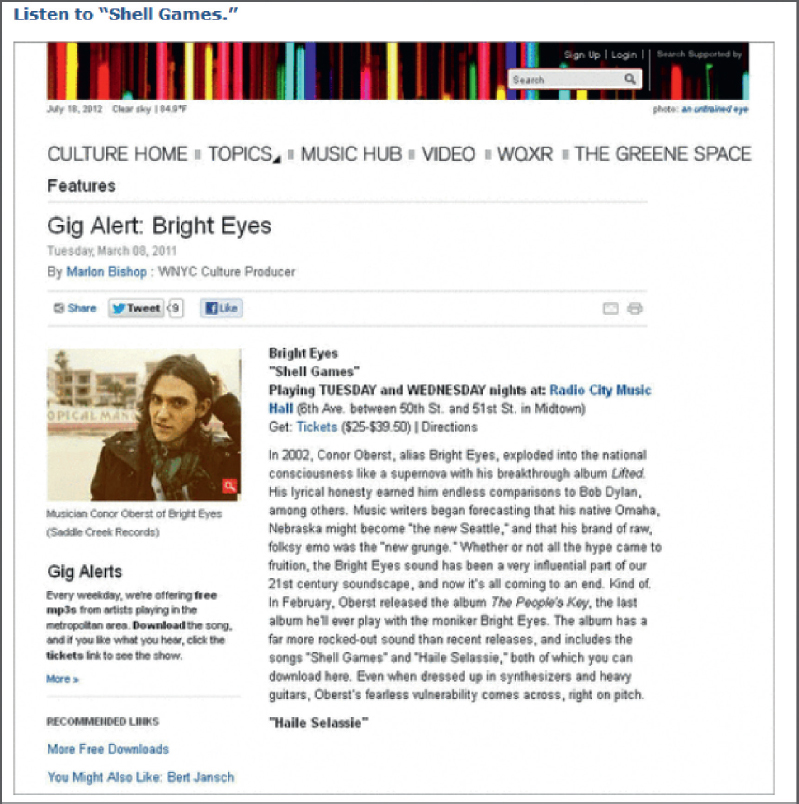Marlon Bishop, Gig Alert: Bright Eyes
Gig Alert: Bright Eyes
Marlon Bishop
The Gig Alert feature of WNYC Radio’s Web site offers free MP3s of songs by artists performing in the New York City area. On March 8, 2011, Gig Alert posted MP3s of Bright Eyes’ “Shell Games” and “Haile Selassie,” as well as brief commentary on the artist and the two featured songs.

Reading for Meaning
READING SUMMARY
Question 6.1
Summarize Gig Alert feature on Bright Eyes. Be sure to put the summary in your own words and to avoid using the sentence structure of the reading selection. Remember that your summary should restate the author’s main idea (or thesis) and include only the author’s most important supporting ideas.
Reading Like a Writer: Presenting the Subject
Typically, critics of music, films, and other forms of entertainment identify — directly or indirectly — the category of the work they are evaluating in the review: for example, pop, hip-hop, classical, or jazz in the case of music, or drama, documentary, comedy, or action-adventure in the case of films. They then apply criteria or standards that make sense based on how people normally judge works of that kind. A documentary film, for instance, might be judged in part on the quality of the sources interviewed or observed.

Write a paragraph or two analyzing how evaluative criteria are set up and applied in the Gig Alert feature on Bright Eyes:
1
How can you tell what category or categories the featured band fits into?
2
What criteria does Marlon Bishop seem to be using to evaluate the songs? Are these criteria appropriate to the category (or categories) you identified? Why or why not?
3
Does Bishop do enough to make his judgments of the songs clear? In your response, consider whether featuring these songs and this musician in a Gig Alert qualifies as offering an evaluation.
4
Question 6.2
In cases like this, when people can judge the music for themselves by listening to the MP3s, does the writer still need to come right out and say whether he or she thinks the music is good or not, and why? Explain your answer.